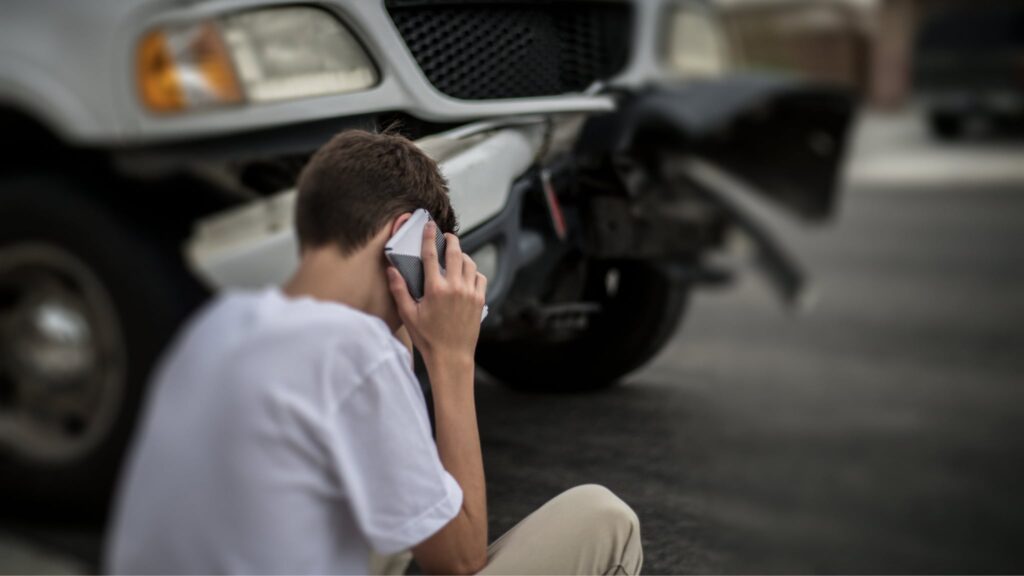- News
- Minor Mistakes, Major Consequences: How to File a Personal Injury Claim for Your Underage Child
Minor Mistakes, Major Consequences: How to File a Personal Injury Claim for Your Underage Child

First of all, we want to emphasize that we sincerely hope no one reading this article ever has to consider filing a personal injury claim or even a wrongful death lawsuit on behalf of their beloved child.
We can imagine nothing more painful for parents than seeing their children harmed for any reason, let alone due to the bad actions of another person, the negligence of a business, or the irresponsible behavior of some other organization. Yet those types of horrific events sometimes happen, so it’s important to know how to handle them if they ever do impact the health and well-being of your kids.
For example, not long ago we became intimately involved in one such tragic case when we filed a wrongful death lawsuit and won a $75 million award on behalf of a Michigan family whose son died when a “friend” gave him an illegal drug instead of the Adderall he’d requested to help him concentrate on his studies.
In that particular situation, the victim was a college student, but younger children are also sometimes injured through no fault of their own. It can happen nearly anywhere and at just about any time – in dramatic car accidents, while kids are innocently playing on school grounds, or even when they’re visiting the homes of trusted neighbors. That’s why, when it comes to personal injuries suffered by minor children, there are some specific legal points of which Michigan parents need to be aware.
-
The statute of limitations is much less limited when children are harmed
As you may know, personal injury cases are governed by a strictly timed filing deadline called the statute of limitations, which states that if you wait too long to file a lawsuit after an injury takes place, you will be legally barred from pursuing compensation. In Michigan, for example, the statute of limitations for personal injury cases is usually just three years, but in the case of minors the law stipulates that the personal injury lawsuit filing deadline is extended until the child reaches the age of majority (age 18), after which any legal actions concerning personal injuries must be initiated within one year. In other words, if your child is injured at age 10, the statute of limitations would be suspended (courts use the term “tolled” to describe this postponement) for eight years, plus one more year after the child reaches 18, to protect the minor’s rights to sue the parties who were responsible for their childhood injuries even once they’ve reached adulthood.
-
Funds awarded to minors in personal injury lawsuits are safeguarded
Michigan law is also specific on how funds awarded to minors must be provided and subsequently protected According to state statute, any annual compensation of less than $50,000 received by a minor child stemming from a personal injury lawsuit is legally required to be used by the parent or guardian only for the child’s “support and education.” Once the child reaches the age of majority, any remaining money “must be turned over” to the victim. Settlement funds totaling larger amounts are also sometimes placed into trust for the child under the supervision of the court, and all such awards granted to minors must be approved by a judge whose goal is to safeguard the child’s long-term mental and physical well-being.
-
Parents don’t necessarily sign away their child’s legal rights even when they’re asked to agree to a “waiver of liability”
Another important thing for parents to know is that even if they’re asked to sign a waiver of liability by a business or some other organization, they are not always bound by that document if it relates to a minor child’s health or safety. For example, the Detroit Tigers claim on their website that if a child is injured at Comerica Park by a fly ball or thrown bat, the Detroit baseball club bears no responsibility for the incident. Specifically, language concerning baseball tickets on the Tigers’ website reads exactly as follows with a blanket disclaimer of liability stating that the “HOLDER IS DEEMED TO HAVE GIVEN A FULL RELEASE OF LIABILITY TO RELEASEES TO THE FULLEST EXTENT PERMITTED BY LAW. IF HOLDER CANNOT AGREE FOR ACCOMPANYING PARTIES, ACCOMPANYING PARTIES MUST LEAVE THE EVENT.” In other words, according to the Tigers, you are prohibited from bringing your kids to a ballgame unless you first agree to waive their legal rights. Furthermore, if you don’t agree to that stipulation, the Tigers are categorically saying that you and your family members can take your balls and go home.
Mike Morse Law Firm attorneys dedicated to protecting our valued clients’ legal rights beg to differ! As a recent case in which a Texas toddler who was hit by a foul ball at a Houston Astros game demonstrates, waivers of liability are not necessarily set in stone, especially in incidents involving children. So if your child ever gets hurt at a ball game (or anywhere else they have the legal right to be), call us immediately at 855-MIKE-WINS (855-645-3946) to see how we can help.
What’s more, as you’ll learn by reading another helpful article we shared on this topic, the same holds true if your child is injured in a fall at a rock climbing gym or gets hurt at a local community fair… or falls from a play structure in a public recreational facility… or gets hurt while enjoying an amusement park ride … or has a tragic accident at a local ski area… or suffers an injury in nearly any place kids like to enjoy themselves. Just contact us right away with the details of what happened, and we’ll take it from there.
-
A recent reinterpretation of Michigan’s
premises liability law could also come into play
In addition to all the above information, parents should be aware that the state Supreme Court recently issued a ruling that may affect the legal rights of many victims – including minor children – who are hurt in slip-and-fall incidents. We explained more about the Supreme Court’s important decision in a detailed article covering that topic. Check it out to learn how it might impact your injured child’s situation.
The bottom line is that if your child is ever seriously hurt, you should take all possible steps to be sure he or she is cared for physically – and legally. That means obtaining first aid by calling 911 immediately, then arranging for necessary subsequent medical care to be sure your child can recover fully from any injuries, and finally securing the best available legal assistance so you won’t have to worry that you’ll be saddled with the resulting medical bills and rehabilitation costs when the injury wasn’t your child’s fault.
We can help you with all that… but only if you get us working on your side. And the only way that can happen is if you make us your attorneys of record by calling to ask for our representation. So, dial 855-MIKE-WINS (855-645-3946) and get on the right road to protecting your injured child’s legal rights and safeguarding your family’s finances from the high costs of unexpected health care and rehabilitation services. It costs you nothing, thanks to our client-friendly contingency fee arrangement which means our compensation comes only from court-approved settlement funds and never from your pocket.

Content checked by Mike Morse, personal injury attorney with Mike Morse Injury Law Firm. Mike Morse is the founder of Mike Morse Law Firm, the largest personal injury law firm in Michigan. Since being founded in 1995, Mike Morse Law Firm has grown to over 200 employees, served 40,000 clients, and collected more than $1.5 billion for victims of auto, truck and motorcycle accidents. The main office is in Southfield, MI but you can also find us in Detroit, Sterling Heights and many other locations.









